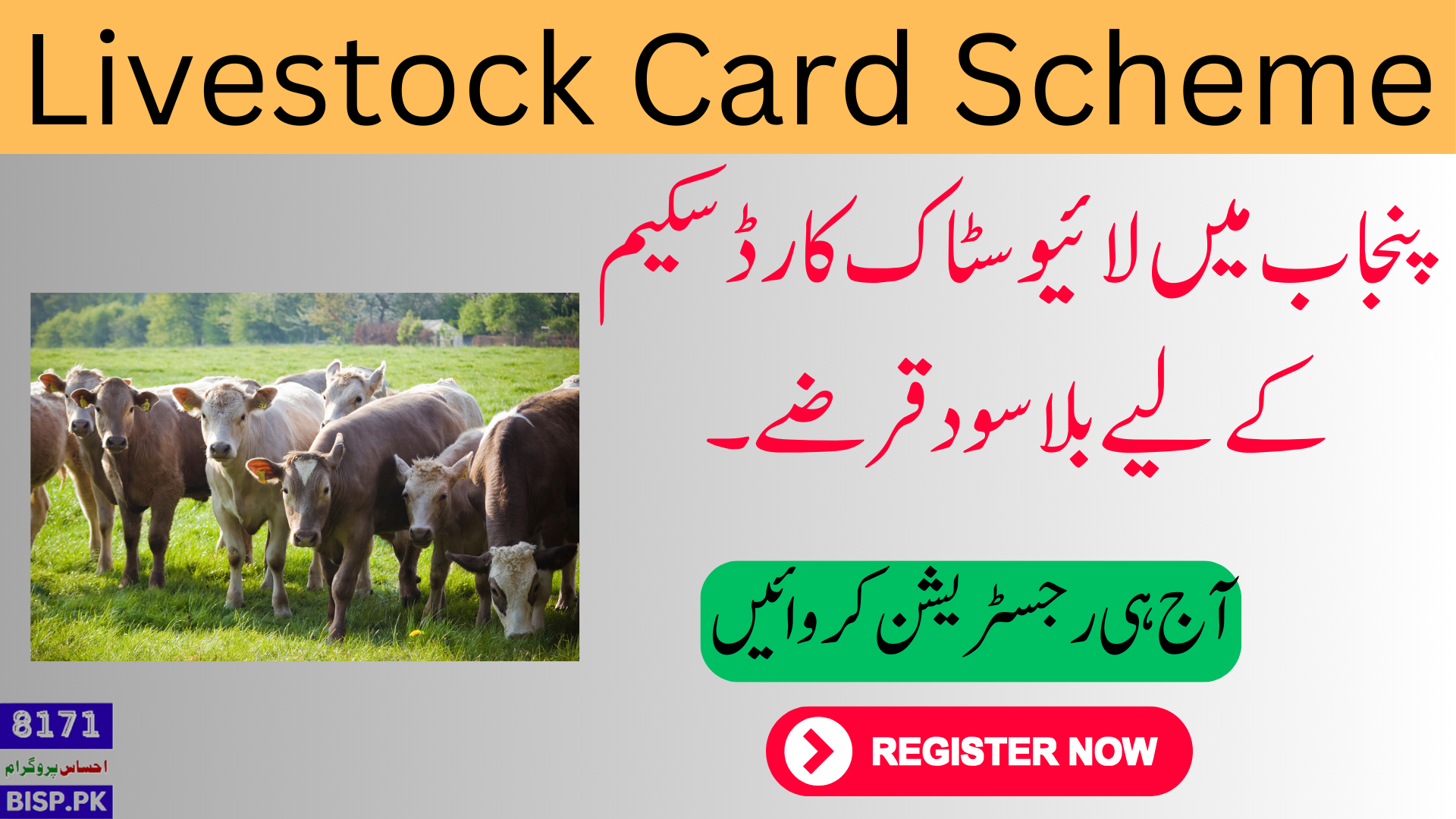Interest-Free Loans For Livestock Card Scheme In Punjab
Updated Information on the Punjab Livestock Card Scheme 2024
The Punjab Livestock Card Scheme, recently approved by Maryam Nawaz, the Chief Minister of Punjab, aims to support qualified farmers—both men and women—by providing interest-free loans of Rs 2.5 lakh for animal feed. This initiative is part of the broader efforts to uplift families involved in the 8171 Ehsaas Program and other eligible farmers in the livestock industry.
To learn more about eligibility criteria for the Punjab Livestock Card Scheme 2024, the number of participating farmers, and the commencement of the scheme’s first phase, please refer to the detailed article.
First-Ever Punjab Livestock Card Scheme 2024 Update
In a landmark decision, Chief Minister Maryam Nawaz Sharif chaired a meeting in Lahore, where significant projects related to livestock were approved. For the first time in Pakistan’s history, the Livestock Card has been introduced to enhance the feeding requirements of livestock by offering interest-free loans to farmers.
READ MORE: Update Issued By Punjab Government For Free WI-FI In Lahore
The Chief Minister has directed to streamline the loan application process for livestock producers and to formulate a comprehensive plan for dairy farming in South Punjab. “We aim to lead the livestock farmers of Punjab towards economic independence,” stated the Chief Minister, emphasizing the government’s commitment to improving the livelihoods of farmers in the region.
40,000 Farmers for Phase 1 in Livestock Card Scheme
During a recent meeting on livestock improvement initiatives, Maryam Nawaz, the Chief Minister of Punjab, announced that 40,000 farmers would be allocated quotas to participate in the first phase of the Livestock Card Scheme. These farmers will be able to register as soon as the Punjab government opens the online application process.
Both men and women can register for the Punjab Livestock Scheme in 2024 to receive financial support for their livestock in easy installments. There are no gender restrictions, and the project will commence soon.
Loan of Rs 2.5 Lakh to be Granted to Farmers
The Punjab Livestock Card Scheme aims to provide financial assistance to underprivileged farmers who cannot afford expensive feed for their animals. By using the loan to expand their livestock, farmers will not only benefit themselves but also contribute to the nation’s economy. The loan amount of Rs 2.5 lakh will be repayable to the Punjab government through a simple installment plan.
Loan Limit for the Punjab Livestock Card Scheme
Under the Livestock Card initiative, farmers in Punjab will have access to loans up to Rs 2.7 lakh to purchase wanda, silage, and mineral combination facilities. Farmers will have 90 days to repay their debt using the Punjab Livestock Card.
Additionally, Punjab’s “Animal Identity Traceability System” will facilitate better care for animals. Farmers will receive facilities for free animal tagging, free insemination services, and quality testing of wanda and silage.
Who is Eligible for the Punjab Livestock Card Program?
Eligibility for the Punjab Livestock Card Scheme is straightforward. Applicants must be Pakistani citizens and permanent residents of Punjab Province, possessing a valid CNIC card. Eligibility for the Benazir Income Support Program can further establish qualification for the interest-free loan.
Overall Details for Punjab Livestock Card Scheme
Properties | Details
— | — Scheme Name | Punjab Livestock Card Scheme 2024 Approved By | Maryam Nawaz Sharif Beneficiaries in Phase 1 | 40,000 in the first phase Amount of Loan | Rs 2.5 lakh Loan Limit (No of Days) | 90 days to return the loan
Conclusion
The Punjab Livestock Card Scheme, led by Chief Minister Maryam Nawaz, represents a significant step towards empowering livestock farmers in Punjab. By providing interest-free loans of Rs 2.5 lakh, the initiative aims to improve the quality of animal feed and promote economic independence among farmers.
The scheme’s first phase will benefit 40,000 farmers, ensuring equal opportunities for both men and women. This historic move not only supports individual farmers but also contributes to the overall economic growth of the region.


